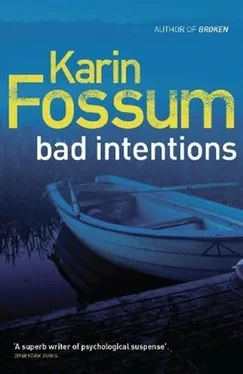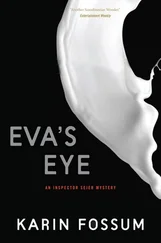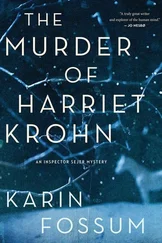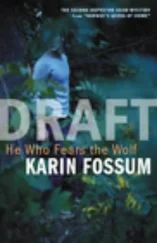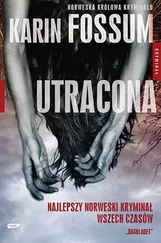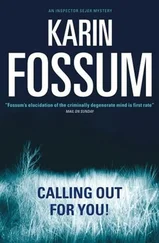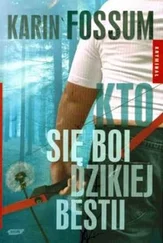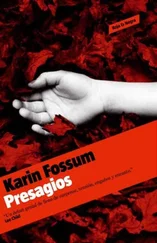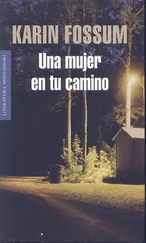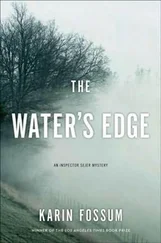‘You’ve found that Vietnamese guy,’ he said. ‘I suppose that’s why you’re here?’
‘Correct,’ Sejer said. ‘We’ve found him.’
Reilly tried to arrange his gangly body, but it was not until he picked up the kitten that he settled down. He had anticipated a barrage of questions, but they just watched him in silence.
‘I expect you’ve read the statement I gave last winter, and now you want me to repeat that and it’s fine, I suppose, you have certain procedures and I understand that. The problem is that statement still stands. I presume that you’ve read it.’
He had to draw breath. He picked nervously at his corduroy trousers. They were slightly too big for him and shone with wear across the knees.
‘No,’ Sejer said. ‘We haven’t read it.’
This white lie baffled Reilly. ‘You haven’t?’
‘I don’t like to be prejudiced,’ Sejer said. ‘I prefer to draw my own conclusions. And Skarre wants to make his own notes.’
Reilly was not entirely sure if he was being serious. He started pacing up and down with the kitten in his arms. It dug its claws into his jumper, terrified of falling from a great height. What do they want from me? he thought, as he wandered around. How do you act if you’ve got nothing to hide? You sit down, look them in the eye. You smile a friendly and open smile. But he could not manage a smile, and he did have something to hide.
‘How did he die?’ he asked.
The two police officers were sitting down on the sofa. He noticed that Skarre had started making notes.
‘It’s difficult to establish the cause of death after such a long time,’ Sejer said. ‘And it’s especially difficult when the body is found in water. We found him in Glitter Lake.’
Reilly started talking again even though Axel had advised him not to. Just answer their questions, he had said, otherwise keep your mouth shut. Your head’s never straight, either, don’t get yourself into trouble.
‘We were only trying to help,’ he said. ‘No one else in Skjæret would take responsibility for him. Irene was dead set on getting rid of him. She was adamant that no one was allowed to stay the night, and that girl is a bit of a bitch. She had even locked the door to her bedroom. But if a poor little guy like him had slept in a corner, what harm would it have done? Not that I’m blaming Irene,’ he said quickly. ‘That’s not how I meant it.
‘It wasn’t easy to get him out of the flat either,’ he carried on. ‘It was like trying to get jelly to walk.’
‘What time was it when you got to Nattmål?’ Sejer asked.
‘It must have been close to three-thirty because we left the party at three,’ Reilly said, ‘and we drove straight there. But it was snowing, so we drove slowly. Axel takes no chances with his Mercedes, he’s terrified of denting it. It’s quite an expensive model,’ he added, ‘with leather seats and all sorts of gadgets.’
‘Now that he has been found dead,’ Sejer said, ‘what are your thoughts? Do you feel guilty?’
Reilly straightened up and glared down at them.
‘Do I feel guilty?’
Frustrated, he tossed his long hair. The kitten was startled by the sudden movement.
‘Of course I feel guilty. I feel guilty that we didn’t walk him to his front door. Perhaps we should have helped him unlock it, and perhaps we should have put him to bed too. That’s what you mean, isn’t it?’
He turned his back to them. Aimlessly, he rearranged some small pots on the windowsill.
‘Jon was also troubled by guilt,’ Sejer said. ‘It’s clear from his diary, which we’ve been studying in detail. But there’s something about his sense of guilt which disturbs us. We can understand that you’ve gone a few rounds with yourselves and from time to time felt a certain responsibility for what happened. But based on what you’ve just described, it’s hard to understand why Jon would choose to end his life. That decision is not in proportion with your story.’
Reilly resumed his pacing. ‘Oh yes,’ he said. ‘It fits perfectly, but you didn’t know Jon. He believed everything rested with us. That we shouldn’t have left him in the street. But I think that’s excessive. No one else would take him. At least we brought him home. We dropped him off by the letterboxes at the bottom of the hill. When we left he was heading for the houses. A little unsteady on his feet, of course, but he was walking. The next day we learned that he had gone missing. We didn’t understand how that was possible.’
‘Was there any traffic in the area?’
‘The odd car.’
‘Did you talk to him when you dropped him off?’
Reilly nodded. ‘We told him to go to bed. We asked if he had a key, and he said yes, he had a key in his pocket. We were tired and we wanted to go home, so we turned the car around and drove off. That’s all I’ve got to say. I’ve told you this so many times, and I don’t know any more than you do. By the way, having this hang over your head month after month is actually very stressful,’ he said, ‘and I don’t mind admitting that I would like to put the whole mess behind me.’
‘I can understand that,’ Sejer said, ‘but it has only just started.’
After interviewing Philip Reilly, Sejer and Skarre drove up to Glitter Lake. They passed the asylum seekers’ centre. In front of the low, barrack-like building a number of men were wandering about. A couple of them sat on a bench smoking. Others were tossing a basketball into a hoop.
‘Two brothers from Gambia drowned here last year,’ Skarre said. ‘Do you remember? They were eight and eleven. Their mother still lives at the detention centre. She never goes outside.’
‘I do remember,’ Sejer said. ‘It was last May. The water was cold.’
Shortly afterwards they turned right and immediately spotted the beach, which had a small hill beside it. Scrub grew around it like a dense wreath, and some of the vegetation overhung the water. Sejer started climbing and soon reached the highest point.
From there he could see the small jetty from which the Gambian boys had gone swimming. He could also see the whirlpool where Kim Van Chau had been found. On the other side of the water lay two or three wooden cabins. There was a bright reflection from a window. Something black scurried past a wall, a dog presumably. He imagined being able to hear his way to the crime, that shouts and screams still lingered in the air – if there had been shouting and screaming – and that he would be able to detect them if he concentrated hard enough. The energy must still be here, he thought, and the fear. The rage. Or despair, that is what makes us kill, and they might have killed him, perhaps to conceal another crime. Or to cover up a mistake. But what kind of mistake? How much can go wrong in a warm Mercedes driving from Skjæret to Nattmål? He looked down at Skarre. He appeared to be listening too. From time to time he would squat and dig his fingers into the coarse sand. Sejer climbed down from the hill.
‘Copacabana,’ Skarre said. ‘What do you think happened?’
Sejer thought about Philip Reilly, who had expressed so many contradictory feelings. Bitterness, despair and guilt. His explanation was unlikely to be true, but it was characterised by a form of righteous indignation, as if something external had taken control of their lives and they could not be held to account for that. Then he thought, Jon Moreno is dead. Reilly is the weakest link now. And he knows it.
‘They drove here,’ he said.
‘But why?’ Skarre asked.
‘Because something went wrong and they had to cover it up.’
‘Perhaps something had already happened at the party,’ Skarre suggested. ‘And they’re protecting each other.’
Читать дальше
